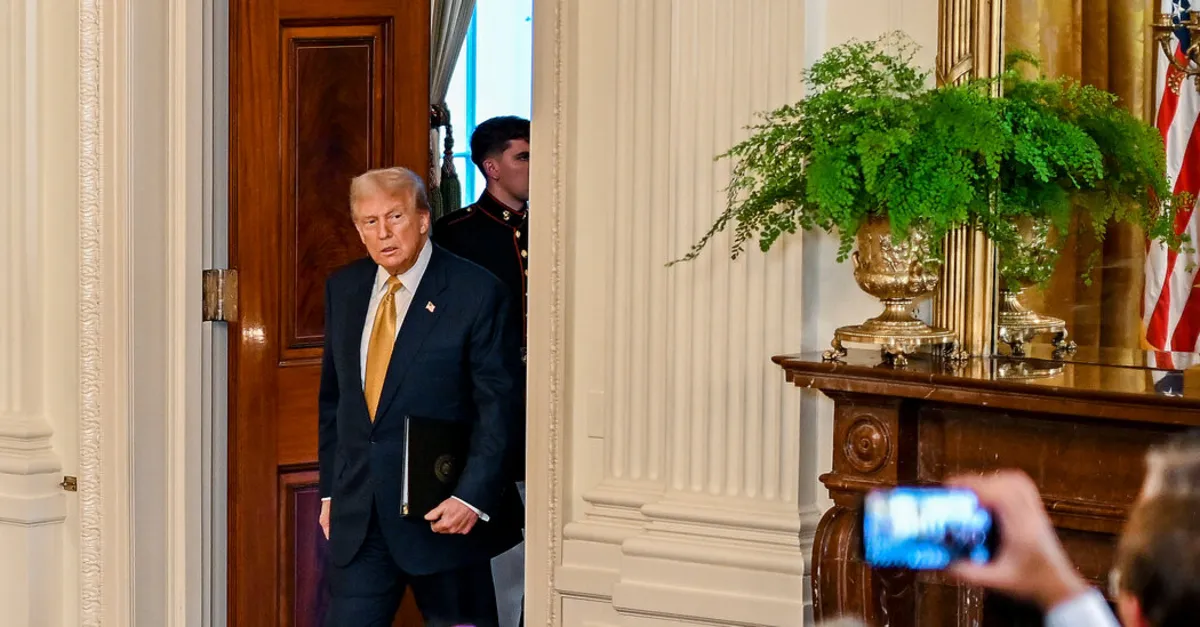
The recent proposal from the government emphasizes the importance of awarding federal contracts to companies that can guarantee their systems are objective and devoid of any top-down ideological bias. This initiative aims to reshape the landscape of artificial intelligence (A.I.) by directing a government agency to revise current guidelines for A.I. development, specifically removing references to diversity, equity, and inclusion, climate change, and misinformation.
On Wednesday afternoon, former President Donald Trump is set to deliver his first significant speech on A.I., a technology that experts predict could revolutionize communications, geopolitics, and the economy in the near future. The president is also expected to sign executive orders that address A.I. development. Previously, Trump has voiced concerns about China's potential to surpass American advancements in A.I. and has advocated for federal support towards A.I. companies through tax incentives, increased foreign investment, and a reduction in safety regulations that might hinder innovation.
David Sacks, the White House A.I. and crypto czar, stated, “We believe we’re in an A.I. race, and we want the United States to win that race.” The alterations proposed during the recent announcement are likely to favor tech giants embroiled in a competitive battle to create generative A.I. products and successfully integrate these tools into consumers' daily routines. Following OpenAI’s launch of ChatGPT in late 2022, a flurry of tech companies, including Google, Microsoft, and Meta, have been racing to develop their versions of the technology capable of producing human-like texts, realistic images, and videos.
As these companies vie for access to computing power from extensive data centers, they face increasing competition from emerging rivals like the Chinese startup DeepSeek, which made headlines this year by developing a powerful A.I. model with unexpectedly low funding. The battle for resources in Silicon Valley coincides with a heated discussion in Washington about the societal implications of A.I. Critics are apprehensive that, if unchecked, this technology could become a tool for scammers and extremists, resulting in economic devastation as automation takes over more jobs.
A series of lawsuits have emerged from news outlets and artists against A.I. companies, alleging that these entities illegally trained their technology using copyrighted works. Notably, The New York Times has filed a lawsuit against OpenAI and Microsoft for copyright infringement concerning news content related to A.I. systems. Both companies have denied any wrongdoing.
Former President Joe Biden took significant steps in the realm of artificial intelligence with a 2023 executive order establishing safety and security standards for A.I. development and use across the federal government. However, shortly after his inauguration, Trump rolled back that order. Subsequently, he signed an executive order titled “Removing Barriers to American Leadership in Artificial Intelligence,” which aimed to accelerate A.I. development by U.S. tech companies and promote technologies free from ideological bias.
The Trump administration has actively sought input from tech firms while formulating its action plan. OpenAI has urged the administration to broaden its list of countries eligible to import A.I. technologies from the U.S., which has been restricted to prevent China from accessing American advancements. OpenAI and Google have called for increased support for building A.I. data centers through tax incentives and fewer restrictions on foreign investments. Additionally, they assert their legal rights to utilize copyrighted materials, such as books and films, for training their A.I. systems.
The action plan released on Wednesday outlines a variety of policy changes aimed at expediting A.I. technology's growth. Many of these proposals focus on the construction of new data centers and enhancing the electrical grid necessary to power them. The plan recommends that the federal government impose fewer environmental regulations on new data center construction and bolsters training programs for workers required to operate these facilities. Furthermore, it emphasizes prioritizing the export of American A.I. tools and encourages federal agencies to assist the industry in marketing A.I. products internationally while countering China’s influence in this field.
This story is developing and will continue to be updated as new information becomes available.